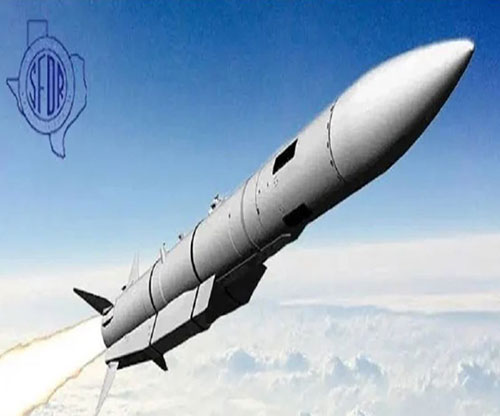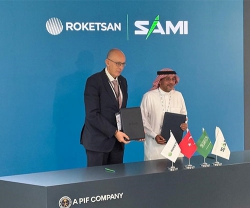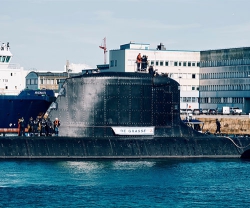India is developing two advanced variants of the Astra beyond visual range air-to-air missiles, with one of them capable of striking targets at a range of 160km, when ready, and the other at almost 300km, Hindustan Times quoted senior government officials as saying on the condition of anonymity.
The Astra Mk-2 and Mk-3 missiles are likely to be tested next year and in 2024 respectively, and are among the Defence Research and Development Organisation’s (DRDO) key ongoing programs, said one of the officials cited above.
The current Astra Mk-1 variant has a range of around 100km.
On May 31, the Indian Defence Ministry signed a ₹2,971-crore contract with Bharat Dynamics Ltd (BDL) to equip the Indian Air Force and Indian Navy with Astra Mk-1 missiles and associated equipment, which was seen as a shot in the arm for “Atmanirbharta”, or self-reliance, in the defence manufacturing sector.
DRDO has transferred technology to BDL for the production of the Astra Mk-1 and associated systems.
“Future air combat will be about detecting and striking targets at the farthest possible range. It will be the outcome of increase in the detection ranges of radars and the advent of longer-range missiles. It is important for India to develop missiles like Astra Mk-2 and Mk-3 to meet IAF’s requirements,” said Air Marshal Anil Chopra (retd), Director General, Centre for Airpower Studies.
China has developed the PL-15 beyond visual range air-to-air missile that can hit targets at around 200km, while the Meteor with a range of around 160 km is considered the best in its class in the western world, and the new Astra variants will put India in the big league, he added.
The Astra Mk-1 missile has been fully integrated with the Sukhoi-30 fighters and will now add to the capabilities of other combat planes including the Tejas light combat aircraft, the officials said. Also, the navy’s MiG-29K fighters, which operate from India’s sole aircraft carrier INS Vikramaditya, will be equipped with the Astra Mk-1 missile.
The ongoing Russia-Ukraine crisis has exposed India’s overwhelming dependence on imported weaponry, especially from Russia, and underlined the urgent need for speeding up the indigenisation drive to become self-reliant.
Long-range missiles allow fighter jets to shoot down hostile aircraft from a significant standoff range, staying out of the adversary’s air defence envelope.
India has imposed a phased ban on the import of 310 different types of weapons and systems during the last two years to boost self-reliance in the defence manufacturing sector.
These include lightweight tanks, naval utility helicopters, artillery guns, missiles, destroyers, ship-borne cruise missiles, light combat aircraft, light transport aircraft, long-range land-attack cruise missiles, basic trainer aircraft, multi-barrel rocket launchers, assault rifles, sniper rifles, specified types of helicopters, next-generation corvettes and airborne early warning and control (AEW&C) systems.
The 310 weapons and systems that have to be developed in the country were notified in three separate positive indigenisation lists published by the Defence Ministry in August 2020, May 2021 and April 2020.
Since the notification of the first and second lists, contracts for 31 projects worth ₹53,839 crore have been signed by the defence services as of April 2022, according to Defence Ministry data.
Also, acceptance of necessity (AoN) for 83 projects worth ₹1,77,258 crore was accorded by April 2022, and cases worth ₹2,93,741 crore will be taken up in the next five to seven years.
The domestic industry is likely to receive orders worth ₹2,10,000 crore in the next five years as a result of the third list, according to the Defence Ministry’s projections.






















